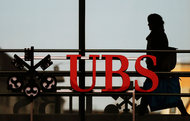BRUSSELS — The European Commission president, José Manuel Barroso, called on Wednesday for an end to the high fees charged for making mobile phone calls across national borders, seizing on one of the few truly popular European initiatives at a time of rising skepticism about the European Union.
In his State of the Union address before the European Parliament in Strasbourg, Mr. Barroso threw his support behind a plan that would phase out roaming fees starting in 2014 as part of a wider overhaul of the telecommunications sector.
European authorities have already “dramatically brought down roaming costs,” he said, and the latest proposal will go further to “lower prices for consumers and present new opportunities for companies.”
The European Union already caps roaming fees, and Neelie Kroes, the Union’s commissioner responsible for telecommunications, suggested in May that the fees be ended. Mr. Barroso’s support for breaking down barriers between telecommunications markets should give the initiative added momentum, but it comes as France, Germany and Britain have grown more wary of giving Mr. Barroso and the commission more powers.
During his speech, Mr. Barroso also highlighted the advances being made by the economy, saying that “recovery is within sight.”
But on a day when the French government said it would miss its deficit target this year and Portugal called for an easier deficit goal in 2014, Mr. Barroso also warned that “even one fine quarter doesn’t mean we are out of the economic heavy weather.” Many Europeans, including the 26 million people who are unemployed, still face hardship, he said.
Against the backdrop of such thorny issues, the question of mobile phone roaming charges was a relatively easy and straightforward one for Mr. Barroso to highlight. When they cross borders, the fees Europeans pay for mobile calls or Internet access increase sharply. That, in turn, has caused travelers in Europe to switch off or limit their phone use — a situation that the industry says is slowing the development of some services.
Yet many companies have already objected to the initiative. Roaming charges have been subject to a variety of caps since 2007. Ms. Kroes’s proposal must be approved by the European Parliament and by European governments before becoming law and is likely to face ferocious lobbying because roaming charges make up a big chunk of telecommunications operators’ profits.
In a sign of the battle to come, Anne Bouverot, the director general of the GSMA, a telecommunications industry group, said in a statement Wednesday that the focus of the sector reforms should be “increased investment in Europe’s telecoms infrastructure” as part of a “more thorough and comprehensive approach.”
On Wednesday, Ms. Kroes called for people to be allowed to switch operators when abroad as a way of putting pressure on the industry to offer better deals. She also called for operators to be allowed to forge alliances to offer cheaper calls and Internet services across the European Union.
The sector still “operates largely on the basis of 28 national markets” and there is still “no telecoms company that operates across the whole” Union, she said in a statement Wednesday.
Ms. Kroes stopped short of proposing legislation that would force an operator to offer the same broadband speed to all of its subscribers. She said that some companies and service providers in sectors like videoconferencing and medical imaging needed more bandwidth to ensure quality.
“All networks and technologies are different,” she said. “So are consumer needs; therefore subscriptions with different Internet speeds or data volumes remain possible.”
But Ms. Kroes said consumers should have the right to walk away from their telephone and Internet contracts if an operator failed to provide them with the speeds that they had paid for.

David Jolly contributed reporting from Paris.
Article source: http://www.nytimes.com/2013/09/12/business/global/end-roaming-charges-across-europe-eu-chief-says.html?partner=rss&emc=rss
